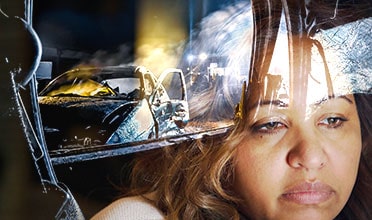Have A Game Plan
Taking the time to come up with prepped answers and activities will make it easier for your child or teen to say to no to drinking when faced with a peer-pressure situation.
Here are some common reasons kids consider drinking and alternative activities and strategies you can suggest.
Activities and Strategies
TO CELEBRATE – Drinking looks like a grown-up way to celebrate a special occasion, but there are many ways to make a milestone memorable without drinking:
- Go shopping for something special, like clothes, music, sporting goods.
- Host an outing, such as dinner with a few friends.
- Offer to have friends over for a supervised party.
TO EXPRESS FEELINGS AND REDUCE INHIBITIONS – Social situations can be stressful for everyone, especially for teens just learning how to navigate new emotional territory.
- Acknowledge the inherent difficulty of some social situations.
- Remind your child or teen that drinking clouds your judgement.
- Alcohol makes it difficult to communicate and can lead to disagreements, fights, and unwanted sexual advances.
TO LIFT THEIR MOOD – Many kids believe alcohol will help them achieve a better mood.
- Reassure your child or teen that it is normal to feel sad and stressed sometimes.
- Suggest they exercise to lift their mood.
TO LOWER STRESS – Kids may have the mistaken assumption that alcohol helps reduce worries.
- Remind your child that alcohol doesn’t make the problem go away.
- Offer productive solutions to deal with the stress long term.
- Suggest stress-reducing activities, like yoga, meditation, journaling, and exercise.
TO GO ALONG WITH FRIENDS – This type of pressure can be direct, such as a person handing your child a beer, or indirect, such as your teen joining a group known for risky decisions.
- Help your child or teen understand the dynamics of peer pressure.
- Make a plan for how you child wants to react to such situations.
- If possible, limit contact with friends who pressure your child to drink.
TO FIT IN – Sometimes it’s not direct words or actions making your child feel pressured, it’s just a general desire to fit in. Kids can see alcohol as a way to achieve that goal.
- Emphasize that “war stories” – like who drank the most, who blacked out, and who had the worst hangover – only highlight the dangers of drinking.
- Encourage your child to focus on their own values.
Activities and Strategies
TO CELEBRATE – Drinking looks like a grown-up way to celebrate a special occasion, but there are many ways to make a milestone memorable without drinking:
- Go shopping for something special, like clothes, music, sporting goods.
- Host an outing, such as dinner with a few friends.
- Offer to have friends over for a supervised party.
TO LOWER STRESS – Kids may have the mistaken assumption that alcohol helps reduce worries.
- Remind your child that alcohol doesn’t make the problem go away.
- Offer productive solutions to deal with the stress long term.
- Suggest stress-reducing activities, like yoga, meditation, journaling, and exercise
TO EXPRESS FEELINGS AND REDUCE INHIBITIONS – Social situations can be stressful for everyone, especially for teens just learning how to navigate new emotional territory.
- Acknowledge the inherent difficulty of some social situations.
- Remind your child or teen that drinking clouds your judgement.
- Alcohol makes it difficult to communicate and can lead to disagreements, fights, and unwanted sexual advances.
TO GO ALONG WITH FRIENDS – This type of pressure can be direct, such as a person handing your child a beer, or indirect, such as your teen joining a group known for risky decisions.
- Help your child or teen understand the dynamics of peer pressure.
- Make a plan for how you child wants to react to such situations.
- If possible, limit contact with friends who pressure your child to drink.
TO LIFT THEIR MOOD – Many kids believe alcohol will help them achieve a better mood.
- Reassure your child or teen that it is normal to feel sad and stressed sometimes.
- Suggest they exercise to lift their mood.
TO FIT IN – Sometimes it’s not direct words or actions making your child feel pressured, it’s just a general desire to fit in. Kids can see alcohol as a way to achieve that goal.
- Emphasize that “war stories” – like who drank the most, who blacked out, and who had the worst hangover – only highlight the dangers of drinking.
- Encourage your child to focus on their own values.




